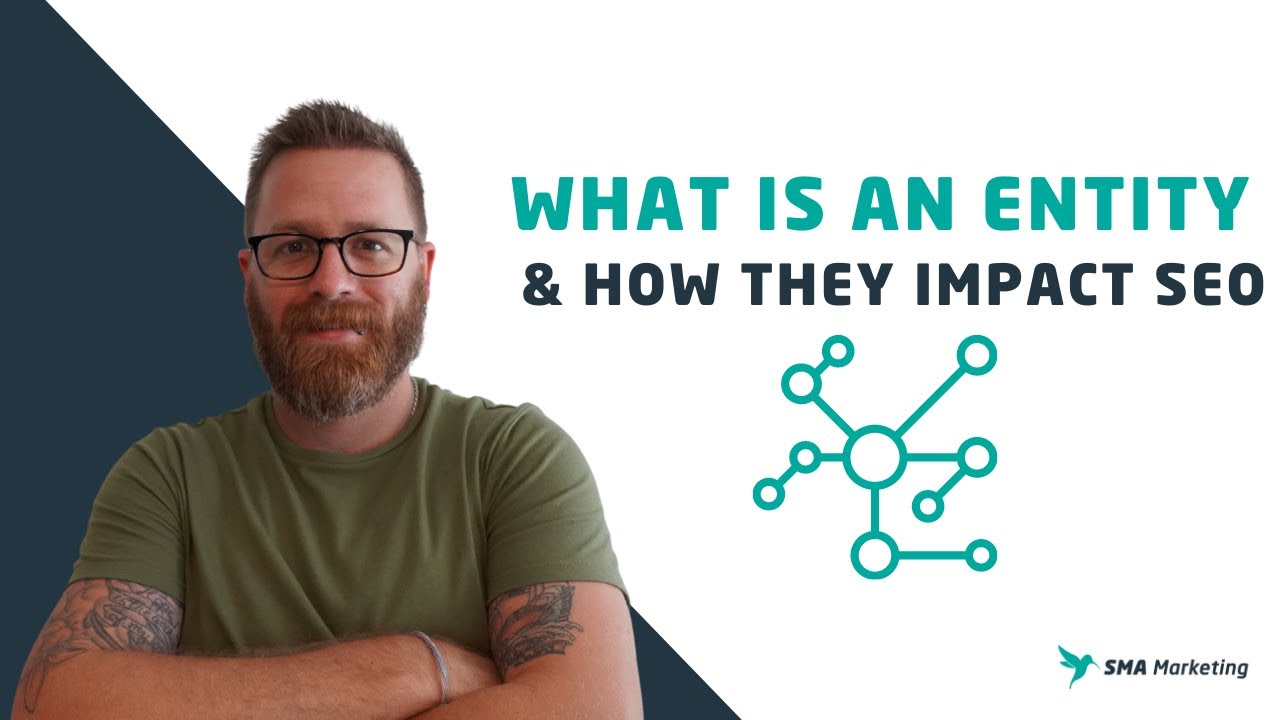Search engine optimization(SEO) is constantly evolving, and one of the latest trends in this field is entity SEO. Entities are objects or concepts that are unique and distinguishable, and they play a crucial role in helping search engines understand the context of contenton the web.
By optimizing content around entities, businesses can improve their search enginerankings, increase click-through rates, and improve the overall user experience. In this article, we will dive deeper into what entity SEOis, how it works, and the benefits it offers.
What Is Entity SEO?

What is an Entity & How They Impact SEO
Entity SEOis a modern search engine optimization strategy that focuses on optimizing content around entities, which are unique and distinguishable objects or concepts. Entities can be people, places, things, events, or ideas, and they play a crucial role in helping search engines understand the context of content on the web. By identifying relevant entities and optimizing content around them, businesses can improve their search engine rankings, increase click-through rates, and improve the overall user experience.
Entity SEO involves analyzing the intent behind search queries, identifying the relevant entities associated with the content, and using structured data markup to help search engines understand the relationships between entities and the content they are associated with.
Importance Of Entity SEO
Entity SEO is becoming increasingly important in modern search engine optimization because search engines are becoming more intelligent and are placing more emphasis on understanding the context of content on the web. Here are some of the key reasons why entity SEO is important:
- Improved search engine rankings- By optimizing content around relevant entities, businesses can improve their search engine rankings and increase visibility for their content.
- Increased click-through rates- Optimizing content around entities can also lead to increased click-through rates, as users are more likely to click on content that is relevant to their search queries.
- Improved user experience- Entity SEO helps search engines provide more relevant results to users, which can lead to increased engagement, reduced bounce rates, and increased conversions.
- Better targeting of long-tail keywords - By analyzing the intent behind search queries and identifying relevant entities, businesses can better target long-tail keywords that are more specific and have less competition.
- Future-proofing SEO strategies - Entity SEO is a forward-thinking approach to SEO that is likely to become more important in the future as search engines continue to evolve and become more intelligent.
How To Implement Entity SEO?
Identify Relevant Entities
The first step in implementing entity SEO is to identify the relevant entities associated with your content. This involves analyzing the intent behind search queries and identifying the entities that users are searching for. Identifying relevant entities is a critical step in implementing entity SEO. Here are some tips for identifying relevant entities:
- Conduct keyword research- Keyword research can help you identify the search terms and phrases that users are using to find content related to your businessor industry. This can help you identify relevant entities that are associated with your content.
- Analyze search intent- Analyzing the intent behind search queries can help you identify the entities that users are searching for. For example, if users are searching for "best coffee shops in New York," the relevant entities might include coffee shops and New York City.
- Use natural language processing (NLP) tools- NLP tools can help you analyze the content on your website and identify relevant entities. These tools use machine learning algorithms to identify entities and their relationships to other entities.
- Consider the user journey- Think about the user journey and the entities that users encounter along the way. For example, if you are a travel company, the relevant entities might include destinations, hotels, and tourist attractions.
- Keep an eye on competitors - Analyzing your competitors' content can help you identify the relevant entities that they are optimizing their content around. This can give you insights into which entities are most important in your industry or niche.
Optimize Content Around Entities
Once you have identified the relevant entities, you can optimize your content around them. This involves incorporating the entities into your content in a natural way, using synonyms and related terms, and creating high-quality content that provides value to users. Here are some tips for optimizing content around entities:
- Use entities in your titles and headings- Incorporate relevant entities into your titles and headings to make it clear to both users and search engines what your content is about. This can also help improve your search engine rankings for relevant queries.
- Use natural language and related terms- When incorporating entities into your content, use natural language and related terms to help search engines understand the context of your content. This can also make your content more engaging and user-friendly.
- Incorporate entities into meta descriptions- Meta descriptionsare short snippets of text that appear in search engine results. Incorporating relevant entities into your meta descriptions can help improve click-through rates and overall SEO performance.
- Create high-quality, relevant content - Creating high-quality content that is relevant to the entities you are optimizing around is essential for success in entity SEO. The content should provide value to users and be written in a way that is easy to understand.
Use Structured Data Markup
Structured data markup is a type of code that provides additional information about the content on a webpage. By using structured data markup to mark up your content with entity information, you can help search engines understand the relationships between entities and the content they are associated with. Here are some tips for using structured data markup:
- Use schema.org- Schema.org is a standardized vocabulary for marking up content on the web. It provides a set of schemas for entities such as people, places, and products. Using schema.org markup can help ensure that your structured data is recognized by search engines.
- Mark up all relevant entities- When using structured data markup, it is important to mark up all relevant entities associated with your content. This can include entities such as products, people, organizations, and events.
- Use JSON-LD - JSON-LD is a lightweight data-interchange format that is easy for search engines to parse. Using JSON-LD markup can make it easier for search engines to understand the context of your content and the relationships between entities.
- Use Google's Structured Data Markup Helper- Google's Structured Data Markup Helper is a free tool that can help you create structured data markup for your content. The tool provides a point-and-click interface for adding markup to your content.
- Test your markup- Once you have added structured data markup to your content, it is important to test it using Google's Structured Data Testing Tool. This tool can help you identify any errors or issues with your markup and ensure that it is being recognized by search engines.
Build Relationships Between Entities
Entities are not isolated objects or concepts; they are often related to other entities. By building relationships between entities, you can help search engines understand the context of your content and provide more relevant results to users. Here are some tips for building relationships between entities:
- Use internal linking- Internal linking is the practice of linking to other pages on your own website. By linking to other pages that contain related entities, you can help search engines understand the relationships between entities on your website.
- Use external linking- External linking is the practice of linking to other websites. By linking to authoritative websites that contain related entities, you can help search engines understand the relationships between entities and provide more context for your content.
- Use co-occurrence- Co-occurrence is the practice of using related terms and phrases together in your content. By using related terms and phrases in close proximity to each other, you can help search engines understand the relationships between entities and provide more context for your content.
- Use structured data markup- As mentioned earlier, structured data markup can help establish relationships between entities. By using structured data markup to mark up your content with entity information, you can help search engines understand the relationships between entities and the content they are associated with.
- Create topic clusters- Topic clusters are a group of interlinked pages that cover a specific topic in-depth. By creating topic clusters around related entities, you can help search engines understand the relationships between entities and provide more context for your content.
Monitor And Analyze Results
As with any SEO strategy, it is important to monitor and analyze the results of your entity SEO efforts. This involves tracking your search engine rankings, click-through rates, and other metrics to see how your optimization efforts are impacting your overall SEO performance. Here are some tips for monitoring and analyzing the results of your entity SEO efforts:
- Use analytics tools- Use analytics tools such as Google Analyticsor SEMrush to monitor your website's traffic, page views, bounce rates, and other key metrics. These tools can help you identify which pages and entities are driving the most traffic and engagement.
- Monitor search engine rankings- Use a tool like Ahrefs or Moz to track your website's search engine rankings for specific keywords related to your entities. This can help you identify which entities and pages are performing well in search results and which ones may need optimization.
- Monitor social mediaengagement- Use social media analytics tools to monitor the engagement and reach of your social media posts related to your entities. This can help you identify which entities are generating the most interest and engagement among your followers.
- Analyze user behavior - Analyze user behavior on your website to understand how users are interacting with your content related to your entities. This can help you identify areas where you may need to make improvements to your content or website structure.
- Adjust your strategy- Based on the results of your monitoring and analysis, adjust your entity's SEO strategy as needed. This may involve optimizing content around specific entities, building relationships between entities, or adjusting your structured data markup.
People Also Ask
How Do Entities Impact SEO?
Entities impact SEO because search engines use them to understand the context of content on the web. By optimizing content around entities, businesses can improve their search engine rankings and increase visibility for their content.
How Do You Identify Entities For SEO?
You can identify entities for SEO by conducting keyword research and analyzing the intent behind the search queries. This involves identifying the relevant entities associated with the content, such as the brand, model number, and features.
How Does Entity SEO Improve User Experience?
Entity SEO improves user experience by providing more relevant results to users, leading to increased engagement, reduced bounce rates, and increased conversions.
Conclusion
Entity SEO is a crucial aspect of modern-day SEO. With search engines becoming more intelligent, it is essential to optimize content around entities to help them understand the context of the content and provide more relevant results to users. So, if you want to stay ahead of the competition and succeed in today's digital landscape, entity SEO should be a crucial component of your SEO strategy.

